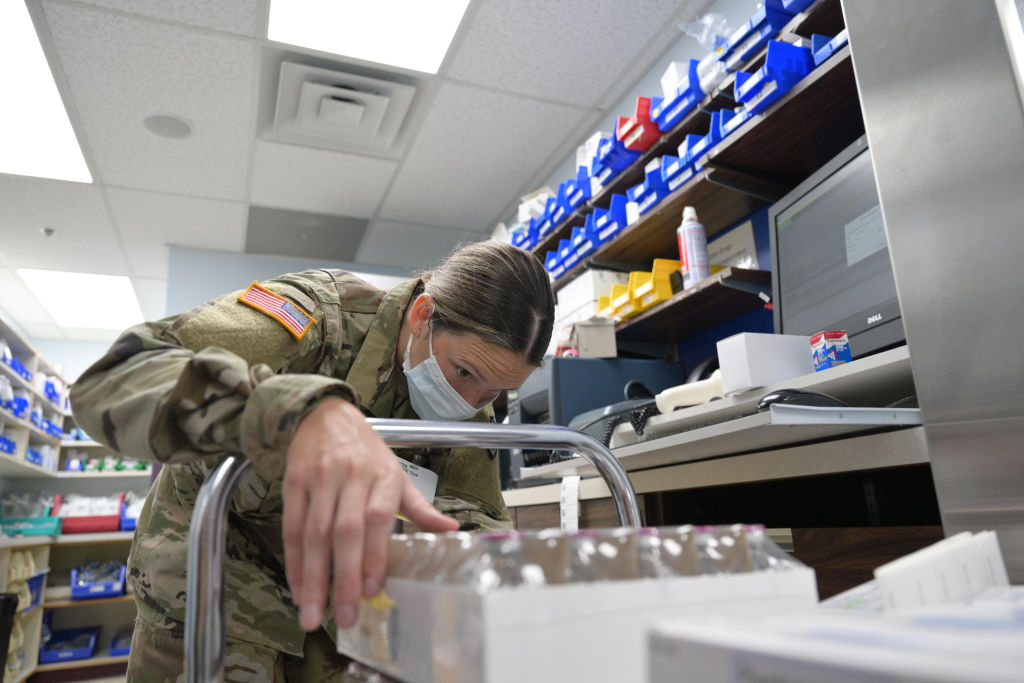I was legitimately worried when I saw a friend post that her daughter may lose access to an important drug used to treat her autoimmune disease. In the aftermath of Roe v. Wade being overturned by the Supreme Court, my friend said drugs such as Methotrexate and Mifepristone were being banned in some states because of their dual purposes as medicative abortion drugs.
As an ardent pro-lifer, I’ve been adamant to clarify how the overturning of Roe v. Wade affects women outside of the legality of abortion itself. When I first heard that ectopic pregnancy or miscarriage treatment could be criminalized in some way, I immediately consulted doctors and lawyers who could clarify the law’s intent.
Thankfully, I discovered that ectopic pregnancy and miscarriage treatment are safe and every state law includes exceptions for doctors to safely make difficult choices if a mother’s life is at risk.
The rumors about autoimmune drugs being banned by the law appear to have been distorted and sensationalized as well. Doctors and pharmacists, not the law, are the ones causing problems for patients.
In reality, none of these drugs have been banned when prescribed for conditions outside of pregnancy. Although an article in the Los Angeles Times states that patients are “losing access” to the drugs, a closer look reveals confusion rather than intentional suppression. Pharmacists, the piece says, are “hesitant” to fill the prescription for anyone “with a uterus,” but there is absolutely no reason they can’t do so. No law prevents it and refusal to fill it is on them.
“I would have no problem or pause at filling a Methotrexate prescription,” said Melissa Brewer Smith, a trained pharmacist in Bloomington, Indiana. “Not once in my seven years of retail practice did I ever think twice about filling a prescription because of an off-label use.”
Smith said she doesn’t see a problem with asking a doctor for a diagnosis code to ensure the prescription is being used for a non-abortive purpose, however.
“I would often refuse to fill a script until I could reach the doctor and ask what it was being used for,” said Smith. “That is our job and it’s not a new thing because of Roe being overturned.”
Prescription drugs are serious, which is why we have pharmacists in the first place. It’s understandable that in the first days and weeks of a big national shift, some outlets may take a moment to ensure they are on solid legal ground. Given that the draft decision was leaked over two months ago, however, they’ve had ample time to get it right.
Nevertheless, the Arthritis Foundation put out a statement saying that patients have had trouble accessing their medication and offering suggestions to help work around it. The Foundation recommends patients ask doctors to write the purpose of the medication on the prescription so the pharmacy is clear that it is not being used in an abortion.
Unfortunately, some patients are being punished because of the inept understanding of their healthcare providers. “I take Methotrexate to control my rheumatoid,” wrote one Twitter user. “I was told today I could not be prescribed it any longer as I am viably fertile and it is a medication that can be used for abortion.”
Others aren’t seeing these issues. My aunt, who suffers from lupus, takes Methotrexate for her condition and has had no issues filling her normal prescription here in Indiana. I’ve spoken with others who attest they’ve had no problems filling their prescriptions that fall into this category.
If there is truly a question on whether or not the medicine is being used for abortion, a simple pregnancy test or call to the prescribing doctor could clear it up. To simply cease filling prescriptions is the wrong choice by the pharmacist. And although it may be inconvenient to go to another pharmacy, that’s always an option should someone run into this issue.
Doctors and pharmacists refusing to prescribe these lifesaving and pain-reducing drugs for those with auto-immune conditions are in the wrong — and they owe it to their patients and the medical community to better understand the actual restrictions.
Pro-abortion advocates are quick to blame pro-lifers for this problem, but it’s healthcare providers that deserve their ire. Change can be hard, but these people went to medical school and doctor of pharmacy programs. They should easily understand distinctions between the uses of a particular drug, even if it has a dual purpose. These problems tend to conveniently arise from folks who are angry about Roe v. Wade being overturned.
Matt Dawson, a Louisiana man who practiced retail pharmacy for twenty-one years, said he has often seen prescriptions for Misprotosol come through for autoimmune conditions like arthritis.
“I’ve never met a pharmacist that confronted a patient about it in the way the media portrays it,” he said. “If an eighty-year-old comes in for arthritis, I’m not gonna deny them and if a twenty-year-old comes in and has it written for arthritis, I will not deny them.”
I can sympathize with folks who are genuinely fearful of losing access to drugs and providers who may feel they are at risk. Those stoking the fires of fear are creating problems that didn’t previously exist. If patients begin to have widespread trouble gaining access to necessary drugs, the healthcare boards and businesses that run the show need to have some serious educational training for their doctors and pharmacists.
Thankfully I can return to my friend and let her know her daughter’s access to medicine should not be at risk if doctors and pharmacists are actually doing their jobs.

























